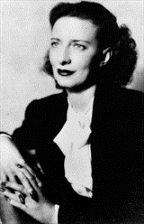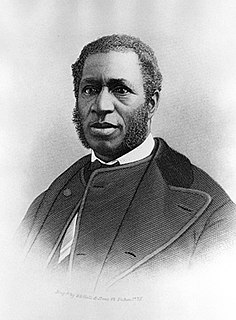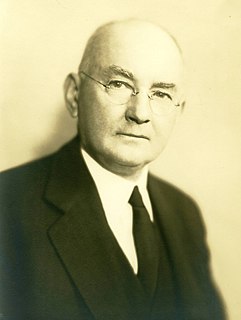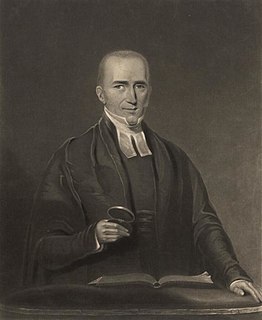
The African Methodist Episcopal Church, usually called the A.M.E. Church or AME, is a predominantly African-American Methodist denomination. It is the first independent Protestant denomination to be founded by black people. It was founded by the Rt. Rev. Richard Allen in Philadelphia, Pennsylvania, in 1816 from several black Methodist congregations in the mid-Atlantic area that wanted independence from white Methodists. It was among the first denominations in the United States to be founded on racial rather than theological distinctions and has persistently advocated for the civil and human rights of African Americans through social improvement, religious autonomy, and political engagement. Allen, a deacon in Methodist Episcopal Church, was consecrated its first bishop in 1816 by a conference of five churches from Philadelphia to Baltimore. The denomination then expanded west and south, particularly after the Civil War. By 1906, the AME had a membership of about 500,000, more than the combined total of the Colored Methodist Episcopal Church in America and the African Methodist Episcopal Zion Church, making it the largest major African-American Methodist denomination. The AME currently has 20 districts, each with its own bishop: 13 are based in the United States, mostly in the South, while seven are based in Africa. The global membership of the AME is around 2.5 million and it remains one of the largest Methodist denominations in the world.

William "Bill" Sharpe was a lawyer, politician, American Revolution patriot, and a delegate to the Continental Congress from Rowan County, North Carolina, which became Iredell County in 1788.

Elisabeth Lillian Wehner, better known as Betty Smith, was an American author. She is best known for her 1943 novel A Tree Grows in Brooklyn, which became an immediate bestseller and is now considered one of the great American novels of the 20th century. The book was later adapted to the screen in the movie of the same title, directed by Elia Kazan, and starring Dorothy McGuire, Joan Blondell, James Dunn and Peggy Ann Garner.

Richard Harvey Cain was a minister, abolitionist, and United States Representative from South Carolina from 1873–1875 and 1877-1879. After the Civil War, he was appointed by Bishop Daniel Payne as a missionary of the African Methodist Episcopal Church in South Carolina.
Oscar Penn Fitzgerald was a Methodist clergyman, journalist and educator. He served as California Superintendent of Public Instruction (1867–1871) and was elected a Bishop of the Methodist Episcopal Church, South in 1890.
Level Cross is an unincorporated community located in the Rockford Township of Surry County, North Carolina.
Shoals is a small unincorporated community in the Shoals Township of Surry County, North Carolina.
Salem is an unincorporated community located in northern Surry County, North Carolina on the outskirts of the city of Mount Airy. The community generally lies between Lovills Creek the Ararat River. Prominent landmarks include Salem United Methodist Church.

Anna Maria Gove was an American physician.

Archibald Campbell Godwin, a brigadier general in the Confederate States Army who was killed at the Battle of Opequon during the American Civil War. Due to his death soon after his appointment, the Confederate Senate never confirmed Godwin's promotion to the grade of brigadier general.

Julian Price was an insurance executive who made his fortune in the first part of the twentieth century by developing the Jefferson Standard Life Insurance Company, at the time the largest corporation in North Carolina.
William Stevens Powell was an American historian, writer and academic. He was professor emeritus of history at the University of North Carolina at Chapel Hill, having retired in 1986.

Moses Ashley Curtis was a noted American botanist.

Louis Round Wilson was an important figure to the field of library science, and is listed in “100 of the most important leaders we had in the 20th century,” an article in the December 1999 issue of American Libraries. The article lists what he did for the field of library science, including founding the library school at the University of Chicago, directing the library at the University of North Carolina/Chapel Hill, and as one of the “internationally oriented library leaders in the U.S. who contributed much of the early history of the International Federation of Library Associations and Institutions.” The Louis Round Wilson Library is named after him.

Harry Hosier, better known during his life as "Black Harry", was an African American Methodist preacher during the Second Great Awakening in the early United States. Dr. Benjamin Rush said that, "making allowances for his illiteracy, he was the greatest orator in America". His style was widely influential but he was never formally ordained by the Methodist Episcopal Church or the Rev. Richard Allen's separate African Methodist Episcopal Church in Philadelphia.
Edwin Mims (1872-1959) was an American university Professor of English literature. He served as the Chair of the English Department at Vanderbilt University in Nashville, Tennessee for thirty years from 1912 to 1942, and he taught many members of the Fugitives and the Southern Agrarians, two literary movements in the South. He was a staunch opponent of lynching, and a practicing Methodist.
Jesse Lee Cuninggim (1870–unknown) was an American Methodist clergyman and university professor and administrator. After serving as Head of the Department of Religious Education at Southern Methodist University in Dallas, Texas, he served as the President of Scarritt College for Christian Workers, which he moved from Kansas City, Missouri to Nashville, Tennessee.
Adlai Osborne was a lawyer, public official, plantation owner, and educational leader from Rowan County, North Carolina (became Iredell County in 1788. During the American Revolution, he served on the Rowan County Committee of Safety and commanded the 2nd Rowan County Regiment of the North Carolina militia. He was elected as a delegate to the Continental Congress, but did not serve. In 1789, he was a delegate to the convention in Fayetteville that ratified the United States Constitution.
Bishop William May Wightman (1808–1882) was an American educator and clergyman. He served as the President of Wofford College from 1853 to 1859. He served as the Chancellor of Southern University in Greensboro, Alabama from 1860 to 1866. He became a Bishop of the Methodist Episcopal Church, South in 1866.

William Howels (1778–1832) was a Welsh priest of the Church of England, known as an evangelical preacher.












